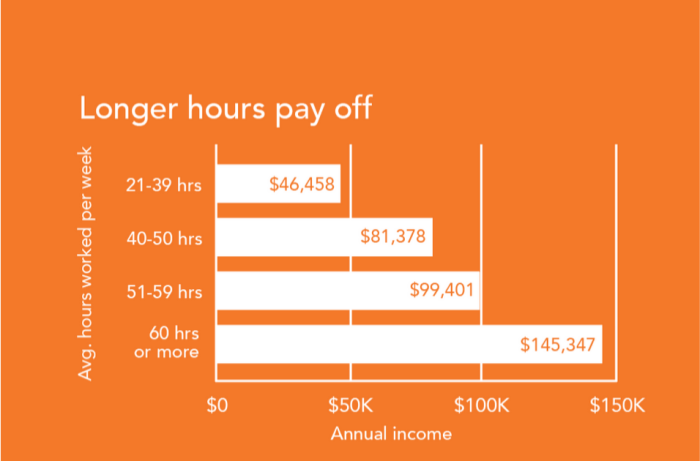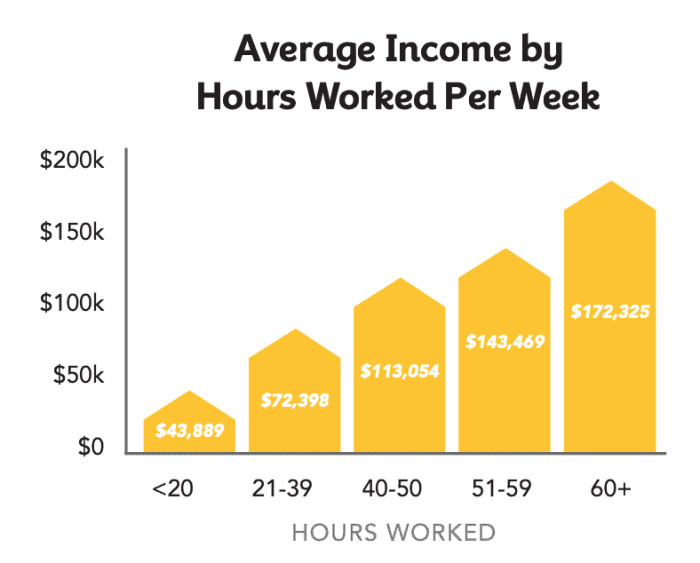How much do luxury real estate agents make? It’s a question that sparks curiosity, conjuring images of lavish lifestyles and hefty paychecks. But the reality is far more nuanced than a simple dollar figure. This deep dive explores the diverse compensation structures, influential factors, and income ranges within this high-stakes profession, helping you understand what truly drives success and earning potential in the world of luxury real estate.
From percentage-based commissions on multi-million dollar properties to additional income streams like referral fees and relocation services, the earning potential is significant but highly variable. This guide will dissect the complexities of this lucrative career, examining experience, location, market conditions, and the unique skills needed to thrive in this competitive field. We’ll also look at the associated costs and lifestyle considerations to give you a complete picture.
Compensation Structures in Luxury Real Estate: How Much Do Luxury Real Estate Agents Make

Source: leadagent.com
Luxury real estate agents, unlike their counterparts in the standard residential market, often operate under more complex and varied compensation structures. These structures are heavily influenced by the high value of the properties involved and the specialized services agents provide to high-net-worth clients. Understanding these structures is key to grasping the potential earning power within this niche market.
Percentage-Based Commissions
The most common compensation method for luxury real estate agents is a percentage-based commission. This typically ranges from 3% to 6% of the final sale price, though the exact percentage can fluctuate depending on several factors. For instance, a higher-end property (above $5 million, for example) might command a lower percentage due to the substantial commission already generated.
Conversely, a smaller, high-value property in a highly competitive market might warrant a higher percentage. The agent usually splits this commission with their brokerage. For example, an agent selling a $10 million property at a 4% commission would earn $400,000 before brokerage splits and other expenses.
Flat Fee Structures
While less prevalent in luxury real estate, some agents or brokerages may offer a flat fee structure, especially for properties with unique circumstances or marketing challenges. This fixed fee is agreed upon upfront and eliminates the uncertainty associated with percentage-based commissions. However, it’s less common in high-value transactions due to the potential for significant lost revenue if the property sells for a significantly higher price than anticipated.
For example, a flat fee of $50,000 might be agreed upon for a unique property regardless of its final sale price.
Tiered Commission Structures
Some luxury brokerages implement tiered commission structures, offering increasing percentages as the sale price rises. This incentivizes agents to pursue higher-value listings and close more substantial deals. For example, a brokerage might offer a 3% commission on sales up to $2 million, 4% on sales between $2 million and $5 million, and 5% on sales above $5 million. This structure encourages agents to focus on and secure luxury listings.
Additional Fees and Income Sources
Beyond the primary commission, luxury real estate agents can generate income from various additional sources. Referral fees are common, where agents receive a percentage of the commission from another agent for referring a client. Relocation services, offering assistance to clients moving to new locations, can also generate substantial income. Furthermore, some agents charge additional fees for specialized services, such as staging consultations or luxury property marketing campaigns.
Commission Structure Comparison Across Firms
| Luxury Real Estate Firm | Commission Structure | Additional Fees | Notes |
|---|---|---|---|
| Firm A | Percentage-based (3-6%, tiered) | Referral fees, relocation services | Higher percentage for properties above $10 million |
| Firm B | Primarily percentage-based (4%), flat fee options available | Marketing fees for high-profile listings | Flat fees are less common and require negotiation |
| Firm C | Negotiated commission, based on market conditions and property value | Referral fees, concierge services | Highly individualized approach to compensation |
| Firm D | Percentage-based (3.5%
|
Relocation services, international marketing | Specializes in high-end international properties |
Factors Influencing Earnings

Source: googleusercontent.com
So, you want to know what really drives income in the high-stakes world of luxury real estate? It’s not just about selling a few fancy homes; it’s a complex mix of factors that contribute to an agent’s overall success and earning potential. Let’s break down the key elements that separate the top earners from the rest.
Experience and Market Knowledge
Years in the business translate directly into higher earnings. Experienced agents possess an invaluable understanding of market trends, pricing strategies, and negotiation tactics. This expertise allows them to effectively represent high-net-worth clients, secure premium listings, and close deals efficiently. A deep understanding of specific luxury markets—be it exclusive beachfront properties or penthouse suites in a major city—is crucial for success.
New agents might struggle to command the same fees as those with a proven track record and extensive knowledge of the luxury market’s nuances. For example, an agent specializing in high-end vineyards in Napa Valley will likely command higher fees than a new agent with limited experience in that niche market.
Networking and Client Relationships
Building a strong network is paramount. Luxury real estate is often driven by referrals and word-of-mouth. Cultivating relationships with high-net-worth individuals, other professionals in the luxury sector (e.g., interior designers, financial advisors), and community leaders is essential for generating leads and securing high-value sales. The ability to build trust and rapport with clients is key; these relationships often extend beyond individual transactions, creating a steady stream of referrals and repeat business.
Think of it as cultivating a personal brand synonymous with luxury and trust. A single referral from a satisfied client could lead to multiple million-dollar deals.
Key Skills and Qualities
Success in luxury real estate demands a unique skill set. Exceptional communication and negotiation skills are crucial for navigating complex transactions and satisfying discerning clients. Strong marketing and branding are equally important for showcasing luxury properties effectively and reaching the right buyers. Discretion and professionalism are paramount, as agents often handle highly sensitive information and deal with high-profile clients.
Adaptability is key in a constantly evolving market. Agents need to stay updated on market trends, technological advancements, and legal regulations to maintain a competitive edge. A successful agent is not just a salesperson, but a trusted advisor and relationship builder.
Geographic Location
Earnings potential varies significantly depending on the location. Major metropolitan areas with a high concentration of ultra-high-net-worth individuals, such as New York City, London, Los Angeles, and Hong Kong, tend to offer higher earning potential due to the sheer volume and value of luxury properties. Areas known for exclusive resorts, waterfront properties, or unique architectural styles also command premium prices and therefore, higher commissions for agents.
Conversely, agents in smaller markets with fewer luxury properties might have lower average earnings. The cost of living in a particular location also impacts an agent’s overall income.
Income Ranges and Statistics

Source: vaned.com
Pinpointing exact income figures for luxury real estate agents is tricky because earnings are highly variable and rarely publicly disclosed. Success in this field depends heavily on individual skills, market conditions, and the size and type of deals closed. However, we can examine available data to get a clearer picture of potential income ranges.
Average and Median Earnings of Luxury Real Estate Agents
Precise average and median earnings for luxury real estate agents are difficult to obtain due to the lack of comprehensive, publicly available data specific to this niche. General real estate agent income data often lumps together all levels of agents, skewing the results. While sources like the National Association of Realtors (NAR) provide aggregate data on real estate agent commissions, it doesn’t usually isolate the luxury market segment.
Furthermore, many high-earning agents’ income isn’t reported publicly. We can, however, infer that earnings significantly surpass those of agents in the broader market. Independent research and anecdotal evidence suggest that top performers in luxury real estate can earn millions annually.
Examples of Successful Luxury Real Estate Agents and Their Reported Income
Specific income figures for individual luxury real estate agents are rarely publicized. However, news articles and industry publications sometimes feature profiles of highly successful agents, often mentioning their impressive sales volumes, which imply substantial earnings. For instance, a top agent in a major metropolitan area might be reported to have closed over $100 million in sales in a single year, translating to a significant commission income.
Such reports, while not providing precise figures, offer a glimpse into the earning potential at the highest levels. Remember that these are exceptional cases and do not reflect the average earnings.
Income Ranges Based on Experience Level and Location
| Experience Level | Location | Income Range (USD) | Notes |
|---|---|---|---|
| Beginner (0-3 years) | Smaller City | $50,000 – $150,000 | Highly variable, dependent on market activity and individual success. |
| Mid-Level (3-10 years) | Large City | $150,000 – $500,000 | Established network and client base contribute to higher earnings. |
| Experienced (10+ years) | Major Metropolitan Area | $500,000 – $2,000,000+ | Top performers in high-value markets can achieve exceptional incomes. |
| Top Performer (Any Experience) | International Markets | $1,000,000+ | Exceptional sales volume and network in high-end global markets. |
Note: Income ranges are estimates and can vary greatly based on individual performance, market conditions, and location. These figures are not definitive and should be considered illustrative rather than statistically precise.
Available Salary Surveys or Industry Reports
Comprehensive salary surveys specifically focused on luxury real estate agents are limited. While general real estate agent compensation data is available from sources like the NAR, it is often not segmented by market specialization (luxury vs. non-luxury). Industry publications and professional organizations sometimes publish articles or reports that touch upon compensation, but these are usually qualitative rather than quantitative, providing insights into trends rather than precise figures.
Therefore, relying on multiple sources and understanding the limitations of the data is crucial when researching this topic.
Lifestyle and Business Expenses

Source: spendmenot.com
The high-rolling image of luxury real estate often overshadows the significant financial commitments involved. While the potential for substantial earnings is undeniable, understanding the associated lifestyle and business expenses is crucial for realistic career planning and financial success. These costs can significantly impact net income, sometimes unexpectedly. Let’s explore these expenses in detail.
Luxury real estate agents operate in a competitive, high-stakes market. Their success depends not only on their sales skills but also on their ability to effectively manage their expenses and maintain a professional image. This often requires a significant investment in marketing, networking, and professional development, all while maintaining a lifestyle that aligns with their clientele.
Business Expenses
Luxury real estate agents face a unique set of business expenses that differ from those in other real estate sectors. These expenses are often directly proportional to the level of service and the price point of the properties they handle. High-end clients expect a certain level of sophistication and personalized service, which translates into higher costs for the agent.
Understanding these expenses is crucial for accurate profit projections. Failing to account for them can lead to unrealistic income expectations and financial difficulties.
- Marketing and Advertising: This includes professional photography, videography, virtual tours, print advertising in luxury publications, online marketing campaigns (including targeted social media advertising), and potentially sponsoring high-profile events. These costs can range from several thousand to tens of thousands of dollars annually, depending on the agent’s marketing strategy and target market.
- Travel and Entertainment: Showing properties often involves travel, sometimes internationally. This includes airfare, accommodation, and transportation. Entertaining clients may involve expensive dinners, sporting events, or other high-end activities. These costs can be substantial, especially for agents dealing with international clientele or properties in multiple locations.
- Professional Development: Staying current in the luxury market requires ongoing education and training. This may include attending industry conferences, workshops, and seminars, as well as investing in advanced technology and software. These costs contribute to maintaining a competitive edge and enhancing professional expertise.
- Technology and Software: High-quality photography, videography, and virtual tour software are essential for presenting luxury properties effectively. CRM software for managing client relationships, and other technological tools, also contribute significantly to operational costs.
- Office Space and Administration: While some agents work from home, others may maintain a high-end office space, requiring rent, utilities, and administrative support staff. This cost varies greatly depending on location and the agent’s business model.
Lifestyle Considerations
The lifestyle of a luxury real estate agent is often demanding and requires significant time commitment. While the financial rewards can be high, the work-life balance can be challenging. Success in this field often necessitates long hours, including evenings and weekends, to accommodate client schedules and property showings. Networking events and client entertainment further contribute to the demanding nature of the job.
This demanding schedule can impact personal relationships and family time. It’s essential for aspiring agents to realistically assess their ability to manage the time commitment required for this career path.
Impact of Business Model and Clientele on Expenses
The expenses incurred by a luxury real estate agent can vary significantly based on their business model and clientele. For example, an agent focusing on high-end residential properties in a specific, affluent neighborhood might have lower travel expenses compared to an agent specializing in international luxury properties or commercial real estate. Similarly, an agent with a large, established network might spend less on marketing and advertising than an agent starting their career.
Agents working independently may face higher administrative and technology costs than those affiliated with a large brokerage. The level of personalized service provided also influences expenses; agents offering concierge-level services will naturally incur higher costs.
Career Progression and Advancement

Source: reluxeleaders.com
Climbing the ladder in luxury real estate isn’t just about closing deals; it’s about building a reputation, refining your skills, and strategically expanding your reach. The path to success is multifaceted, involving consistent learning, targeted specialization, and shrewd business acumen.
A typical career trajectory often begins with building a strong foundation in the broader real estate market. New agents might focus on accumulating experience and building their client network. As they gain experience and demonstrate success, they transition into higher-value properties, eventually specializing in the luxury segment. This transition usually involves developing a deep understanding of the unique needs and preferences of high-net-worth individuals, mastering sophisticated marketing strategies, and building strong relationships with key players in the luxury market, such as private bankers, wealth managers, and other professionals who serve high-net-worth clients.
Specialization Within the Luxury Market, How much do luxury real estate agents make
Specialization significantly enhances an agent’s earning potential and brand recognition. Focusing on a niche, like waterfront properties or high-rise condos, allows agents to become experts in their chosen area, attracting clients seeking their specific knowledge and experience. This focused expertise translates to higher commission rates and a more consistent flow of high-value listings. For example, an agent specializing in exclusive beachfront properties in Malibu will command higher fees due to their intimate knowledge of that specific market and the clientele it attracts.
Similarly, an agent specializing in luxury high-rise condos in a major metropolitan area will become a sought-after resource for those seeking that type of property.
Increasing Earning Potential Through Advanced Training and Certifications
Continuing education is crucial for maintaining a competitive edge in the luxury market. Advanced training in areas like luxury marketing, negotiation techniques, international real estate, and wealth management can significantly boost an agent’s skillset and earning potential. Obtaining certifications, such as those offered by the Institute for Luxury Home Marketing, demonstrates commitment to professional excellence and can attract high-end clients who value expertise and credentials.
These certifications signal to clients that the agent has invested in their professional development and has a deeper understanding of the luxury market.
Examples of Successful Career Paths and Strategies for Advancement
One successful strategy involves leveraging existing professional networks. Agents with backgrounds in finance, law, or other high-net-worth professions often find it easier to transition into luxury real estate because they already possess strong relationships with potential clients. Another effective approach is building a strong online presence through targeted marketing and engaging content. This helps to attract affluent clients actively searching for luxury properties.
For example, an agent might build a successful career by focusing on social media marketing targeting specific demographics known to be interested in luxury properties in a certain geographic area. This can lead to consistent leads and increased sales, ultimately boosting their income. Another successful path involves building strong relationships with other high-net-worth professionals such as financial advisors, attorneys, and interior designers, creating a referral network that generates consistent high-value leads.
Wrap-Up

Source: luxvt.com
So, how much
-do* luxury real estate agents make? The answer, as we’ve seen, isn’t a single number. Success in this field hinges on a potent mix of expertise, networking prowess, and a keen understanding of the luxury market. While the potential for substantial earnings is undeniable, building a thriving luxury real estate career requires dedication, strategic planning, and a willingness to navigate the complexities of high-value transactions.
Understanding the various income streams, expenses, and market dynamics is crucial for anyone aiming to excel in this challenging yet rewarding profession.